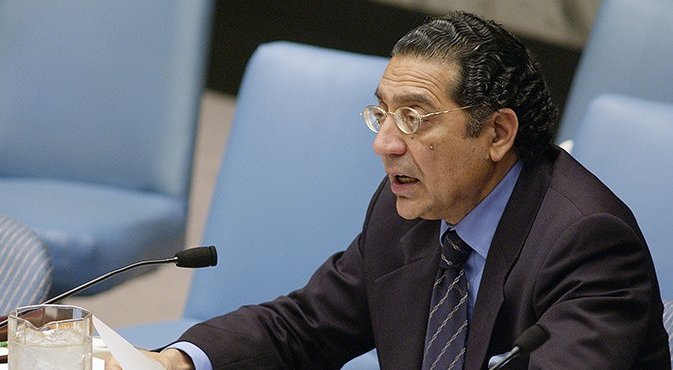UNITED NATIONS, The President of United Nations Economic and Social Council (ECOSOC), Pakistani Ambassador Munir Akram, has urged States to boost development cooperation, which is vital to tackle the dual challenge of recovering from the coronavirus pandemic and fighting climate change, as the 54-member body concluded a two-day forum on the subject.
Connecting participants virtually, the Development Cooperation Forum held two sessions — one addressing competing priorities of pandemic recovery and climate action, and the other focusing on regional cooperation on science, technology and innovation in the COVID-19 era.
In his closing remarks, the ECOSOC chief expressed hope that the Forum will mark the start of new collective action to build back better through systemic change.
“The ideas and solutions identified will, I hope, lead to a new paradigm of international development cooperation, stronger and more effective collaboration in the decade of action for the Sustainable Development Goals (SDGs),” Ambassador Akram said.
Summarizing some highlights, he said that strengthening development cooperation in the context of COVID-19 means helping developing countries to overcome the pandemic, reduce risk and build resilience.
Every region, State and community has experiences and knowledge to share with others for mutual benefit, the ECOSOC chief said.
The pandemic is an opportunity to scale up efforts to reduce the risk of future shocks, he said.
Financial support for developing countries during and after the pandemic is critical.
Levels of ODA (Official Development Assistance), he said, should be revived and Special Drawing Rights (SDRs), a type of foreign reserve asset developed by the International Monetary Fund, used to best effect, with unallocated SDRs provided for development support.
Strengthening health and social protection systems should be a priority and vaccines, medicines and other medical supplies deemed a global public good, Ambassador Akram said.
South-South cooperation and triangular cooperation has been prominent in crisis recovery from this pandemic, he said, noting it has brought together public health agencies, preventing avoidable illnesses and debt from Covid-19.
With greater international commitment, Ambassador Akram said all countries can access vaccines and modern technologies as global public good
Better efforts also need to be made to share new and emerging technologies, ECOSOC chief said.
No country, community or company can address health crises, climate change or inequalities on its own, he said, adding that the Forum’s work will help inform the high-level political forum on sustainable development in July and the United Nations Climate Change Conference, also known as COP26, in Glasgow from November 1 to12.
Silvio Gonzato, Deputy Head of the European Union Delegation to the United Nations, said that Governments around the world are borrowing heavily to counter the impact of the pandemic, meaning borrowing from future generations.
Therefore, recovery plans should be designed as a once-in-a-generation opportunity to “build back better”, by investing in green and digital transitions and creating a fairer, more resilient economy and society.
“No vaccines are coming to save the planet,” said Patrick Verkooijen, Chief Executive Officer of Global Centre for Adaptation, in his message, warning that, if the world continues its current development path, the Earth will become inhabitable.
He then called for greater development cooperation as the crises like COVID-19 and climate change can not be addressed in silos.
Jennifer del Rosario-Malonzo, Executive Director of IBON International, said developed countries are not upholding their promise to mobilize an additional $100 ?billion to help developing countries fight climate change, yet are doling out billions of dollars to rescue the fossil fuel and aviation industries.
Development cooperation for pandemic recovery should be supporting a transition to more equitable, greener economies, she said, emphasizing the need for climate finance that is new and a complement to official development assistance (ODA).
Follow the PNI Facebook page for the latest news and updates.









